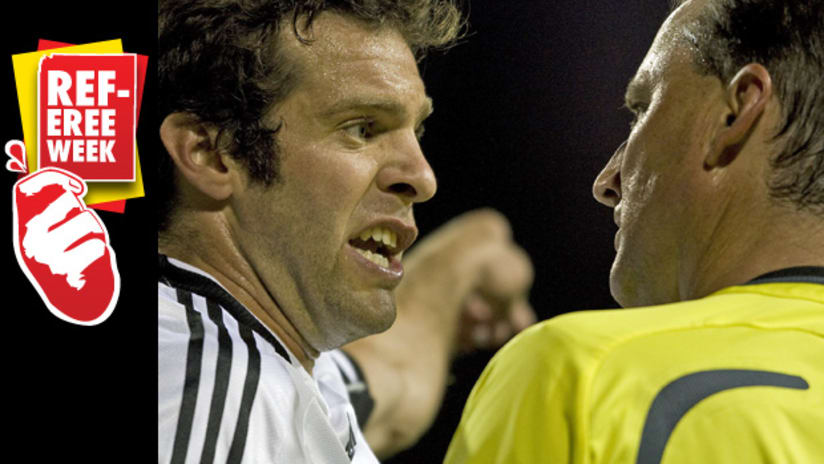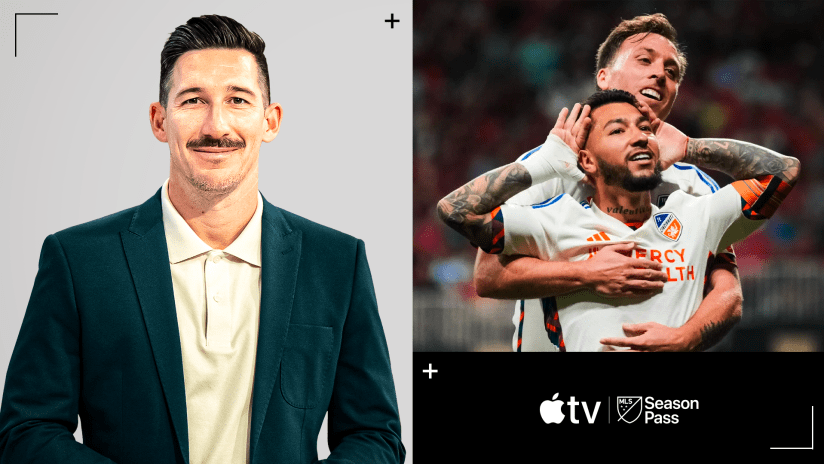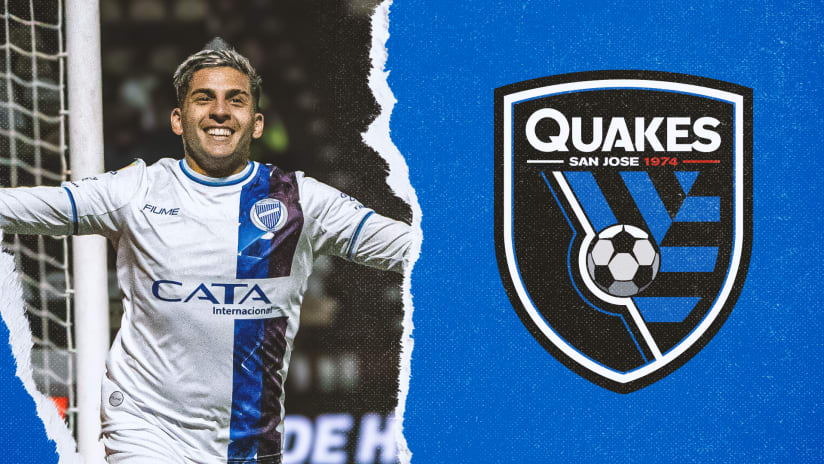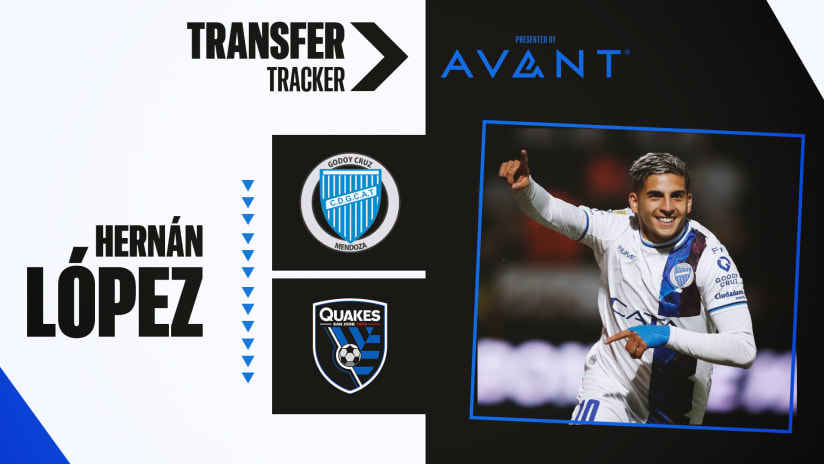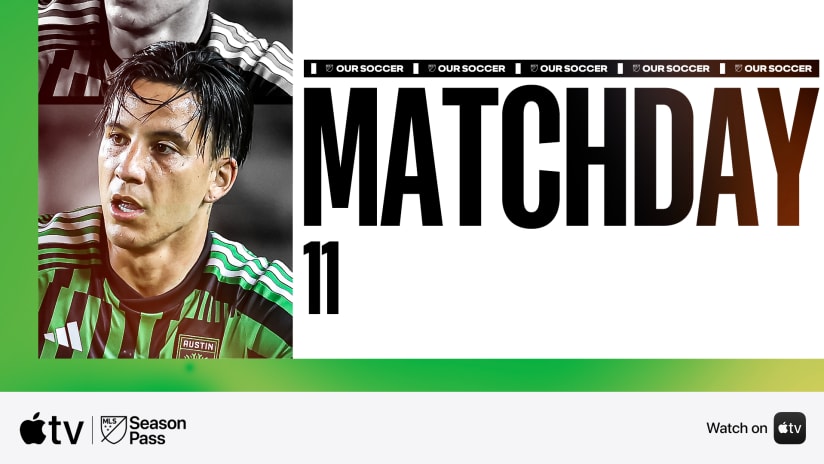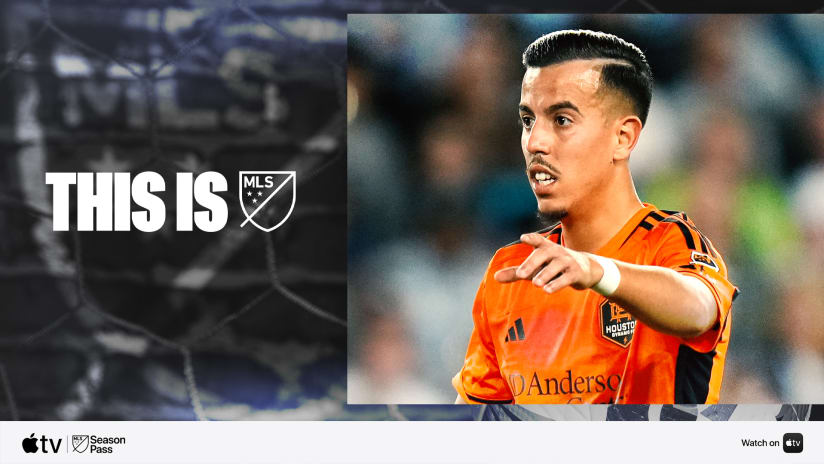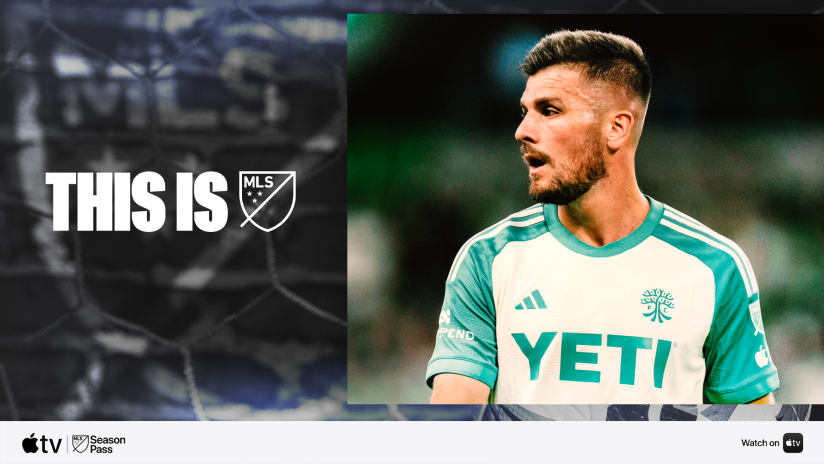Craig Waibel was one of the hardest hard men in MLS over the course of his 11-year career, an uncompromising defender who anchored the Earthquakes/Dynamo dynasty of the past decade and earned respect for his hard work, both on the field and in the community.
Waibel began to contemplate his life’s next chapter as his playing days wound down, knowing he wanted to stay in and around the game he loved. He considered a range of options, including a move into the one area of the sport surprisingly devoid of former top-flight professionals: refereeing.
“I talked about it with my teammates and my ex-teammates once I retired, about the idea of me transitioning into officiating,” Waibel told MLSsoccer.com last month. “I got the same comment from almost everyone: ‘Oh, you can’t become one of them!’”
That simple sentiment tidily sums up the yawning gap between players and referees in the modern era, even as they mingle and interact on the field with ever-increasing speed and intensity in front of the fans and cameras.
WATCH: A Portrait of Dissent

Over the years MLS, the Canadian Soccer Association and US Soccer have tried a number of initiatives to fast-track the quality of the league’s refereeing, including an outreach program to lure former players into the field.
After all, who better to shepherd elite pros than someone who was once one himself?
“We would subsidize and help that player along, to move that player up the ladder quickly and fast-track him to get him ready for the professional division,” explained Paul Tamberino, MLS' director of referee development.
Yet not a single ex-MLSer has chosen that path, most preferring to enter coaching or club administration or leaving the game altogether. And unlike Waibel, most never even consider becoming one of the men in the middle, despite their many complaints about refereeing decisions.
“I think in some peoples’ minds, it’s logical,” said Ben Olsen, D.C. United’s head coach and former star midfielder. “But I would never want to be a referee. I don’t know why that is – maybe it’s because of the way I’ve treated referees in my lifetime. I would never want to put up with guys like me, essentially.
“Players realize that it’s a very tough job, and it’s a thankless job, and people only recognize you when you screw up.”
Despite his own self-acknowledged reputation for ref-baiting as a player, Olsen is acutely aware of the difficult nuances of the officiating profession, and thinks he’d be “a terrible referee.” He even believes it’s important for coaches to referee scrimmages during training sessions in order to keep that perspective in mind.
Yet for him, like most of his cohorts, it appears to be a cats-and-dogs relationship.
“I’ve got a lot of respect for referees, despite my demeanor towards them sometimes,” he quipped. “I’ve been abusing them since I was seven years old. When you live this life as a player, the referees are the judge, and sometimes you get sentenced and you don’t like it.”
Inevitably, given the stakes, players are often among the first to critique officials’ performances, and they also express their opinions as a group through representation on the MLS refereeing committee. When Jimmy Conrad served on the committee during his playing days, he says that “one of the things that we emphasized to MLS and US Soccer was that we wanted these guys to actually have played the game, [so] that they understood the subtleties” – yet he sounds pessimistic about his ilk making the leap.
“I definitely think there’s some merit to having an ex-player be a referee,” noted Conrad, the wisecracking defender who called time on his impressive MLS career earlier this year and took a coaching job in Chivas USA’s youth system. "I just don’t see it happening any time soon because of the stigma that would be attached to making that transition."
“I think it’s some form of ‘selling out’ that exists with that,” he added. “It’s one thing to become a coach, where you’re still kind of in the mix. When you become a referee, you’re something different altogether, and I don’t know if that really excites too many players, to jump in that arena. You go from being heckled by one set of fans, and you become a referee, you get heckled by both sets of fans, and players and coaches.”
The physical demands can be daunting, too. Waibel, who recently joined the University of Michigan as an assistant men’s soccer coach, also had to consider the fitness standards required of refs as he surveyed his aching body at career’s end.
He thinks a 20-something ex-player with “loyalty to MLS” would have the best chance of making the switch, and believes US refereeing will develop along the same incremental timeline as that of the game itself in this country.
In the meantime, Tamberino and his staff stand ready to resurrect the initiative, as soon as just one candidate steps forward.
“If you’ve played at a competitive level of the sport, that can only help you in officiating,” he said. "This is a great way you can contribute, to make the game better. It’s still out there, and I think we can get one or two guys eventually.”

